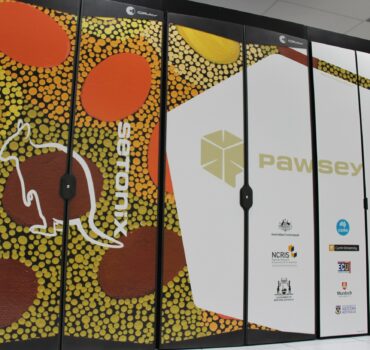AGRF Deploys Pure Storage Solution from XENON
10 Jul 2023
 XENON has deployed Pure Storage’s FlashBlade unified fast file and object (UFFO) solution for the Australian Genome Research Facility. The new flash storage array is being deployed for genomics sequencing analytics, and is already delivering dramatic decreases in processing times.
XENON has deployed Pure Storage’s FlashBlade unified fast file and object (UFFO) solution for the Australian Genome Research Facility. The new flash storage array is being deployed for genomics sequencing analytics, and is already delivering dramatic decreases in processing times.
Genomic sequencing generates large amounts of data and metadata, with the AGRF producing over 10 terabytes of information every week. This amount increases by almost a factor of four before the data makes it way to the client. AGRF migrated existing workloads to FlashBlade, which can provide up to 15 gigabytes per second and 24 million IOPs depending on the amount of blades being used.
Moving to Flashblade and the combined file and object storage provided higher bandwidth, I/O, and lower latency for quicker completion of computing jobs.
AGRF has reduced its clinical genome sequencing times by as much as 86 per cent, dropping from 28 days to just 10, or in some cases, only four days for urgent work.
The genomics NFP has also improved six-fold the time taken to complete the initial phase of its analytics workflow, from 18 to three hours, along with boosting other parts of the process, resulting in a 26-fold hike in performance.
Pure Storage’s director for channels in Australia and New Zealand Adam Rosham said its partner, XENON Systems, was critical for the success of the deployment.
“XENON was one of Pure’s first AI-specialised partners when we launched the industry’s first AI-reference architecture system, AIRI, back in 2018.” Rosham said.
About AGRF
Founded in 1997 AGRF is a not-for-profit company headquartered at the Australian National University, with laboratories in Brisbane, Sydney, Melbourne, Adelaide and Perth.
It has some 15,000 customers worldwide with capabilities across biomedical, clinical, agricultural and environmental sectors.

 Download the XENON AGRF Case Study
Download the XENON AGRF Case Study

